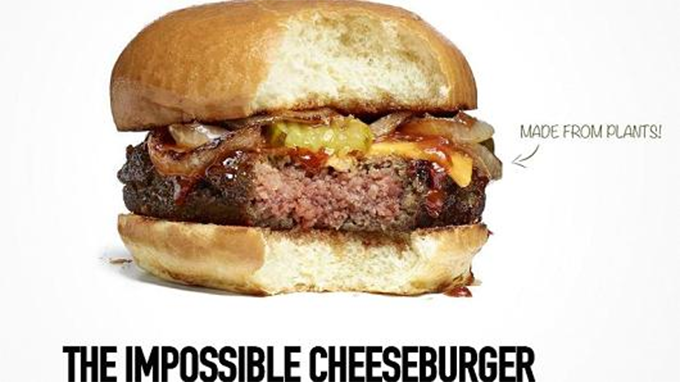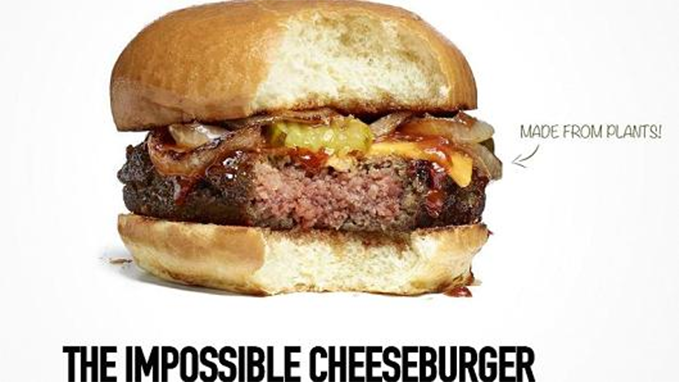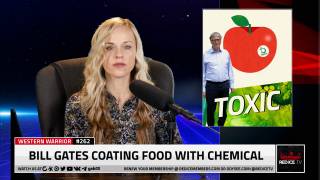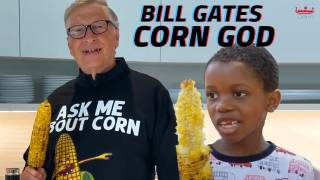Bill Gates bets on growing demand for sustainable foods
Source: cnbc.com

"This is not a product for vegetarians," claimed Patrick Brown, a Stanford biologist and physician turned food-tech entrepreneur about the meatless yet purposely meatlike hamburger his Redwood City, California-based start-up, Impossible Foods, is developing. "Our whole reason for doing this is to provide choices for people who are uncompromising meat lovers."
Up the road in San Francisco, Josh Tetrick, a former college linebacker and Fulbright scholar, insisted that his three-year-old food company, Hampton Creek, which uses a laboratory-born egg substitute to make mayonnaise and cookies, "is not about reaching out to health-conscious consumers. Our whole philosophy is that if you crave something that tastes really freakin' good and is less expensive, even if you don't give a damn, you end up choosing it."
Although this pair of CEOs are vegans, they're adamant about not preaching veganism or vegetarianism to the masses. Instead, they say they are part of the sustainable food movement, which includes the existing spate of soy-based meat substitutes as well as organics and free-range animals.
They're among a growing group of global leaders who are making it their business to confront the dramatic growth of the world's population, estimated to exceed 9 billion by 2050, which would require raising overall food production by at least 70 percent, the FAO reports. A huge burden on the planet's livestock, land, water and other resources.
So while Brown and Tetrick decry the global multitrillion-dollar Big Food industry for wreaking havoc on farm animals and the environment, they're also passionate about pioneering better-for-you alternatives that make great business sense—just without proselytizing. And although they're confident that their plant-based products, bioengineered to mimic beef and eggs, will appeal to omnipresent omnivores, like-minded venture capitalists are already voracious.
"I'm interested in both companies because they're disrupting the food industry, which is long overdue," said Samir Kaul, a partner at Khosla Ventures, the first among numerous VC firms and private investors to have infused $120 million into Hampton Creek and $75 million into Impossible Foods. "Both of them are providing food that is as good if not better, as cheap if not cheaper, and much healthier and more humanely made."
Similarly, socially-minded financial backers of those and other food-tech start-ups—such as Beyond Meat, Modern Meadow, Unreal Candy, Nu-Tek Salt and Bright Farms—include Microsoft's Bill Gates, Peter Thiel of Founders Fund, Hong Kong billionaire Li Ka-shing's Horizons Ventures, and twin brothers and serial investors Ali and Hadi Partovi.
That's because the market these disruptive companies are targeting is ripe for change. "Raising meat takes a great deal of land and water and has a substantial environmental impact," Gates wrote on his personal blog, Gatesnotes.com. "Put simply, there's no way to produce enough meat for 9 billion people. Yet we can't ask everyone to become vegetarians. That's why we need more options for producing meat without depleting our resources."
Dichotomy turns out to be a major ingredient in Hampton Creek's and Impossible Foods' recipes for success. It goes beyond marketing meat replacements to unapologetic meat eaters, beginning with the formulation of the products themselves. Hampton Creek unleashed a team of data scientists and computational biologists to analyze nearly 4,000 plant molecules and build a reasonable facsimile of the chicken egg, using proteins from the Canadian yellow pea and an American variety of sorghum.
It's science that produces the all-natural, non-GMO elements inside the company's introductory products, Just Mayo and Just Cookies. Predictably, they're popular at Whole Foods and health-food stores yet also share shelf space alongside Hellmann's and Chips Ahoy at Walmart, Target, Dollar Tree and other Big Food purveyors.
"We think we can use the power of their infrastructure to make a big difference," Tetrick said of what might seem to some as strange bedfellows. Indeed, Hellmann's parent Unilever sued Hampton Creek last fall, declaring that mayonnaise by definition contains eggs, but backed off when media coverage only boosted Just Mayo's exposure.
Tetrick followed the same strategy when he struck a deal with Compass Group USA, the nation's largest food-service company, and its procurement arm, Foodbuy, to sell Hampton Creek products to health-care organizations, senior living centers, universities and other institutional food providers. "We're the only cookie or the only mayo at Boeing, HP, Google and [Lucasfilm's] Skywalker Ranch," boasted Tetrick about contracts with corporate cafeterias. "That's a huge part of our company."
Impossible Foods, meanwhile, can only imagine such realities as R&D on its Impossible Burger continues toward a product launch in 2016. Effectively raw ground beef made entirely from plant ingredients, it even "bleeds," thanks to heme, a replica of a molecule in hemoglobin extracted from the roots of legumes.
"The burger gets better every week," said Brown, whose team of scientists, chefs, farmers and engineers began tinkering with plants a year and a half ago. Hundreds of taste tests of prototypes have gone well. "We're at a point where it doesn't matter if you're a contractor or a chef. If you aren't told that it is anything other than ground beef, you'll assume it is. We now have to produce a consistently great product at scale."
Changing consumer appetites
Marketing plans are in the developmental stage, too, though Brown is keeping specifics under wrap. "Suffice to say, it will be very exciting," he said, hinting that the rollout will feature public events and celebrity chefs.
Brown reiterated, however, that burger lovers will have no beef with his. He cites research that says, "If an alternative could satisfy them, provide all the pleasure they get from eating meat but was made from plants, they would prefer it." Adept at mixing molecules and metaphors, he added, "If they could have their cake and eat it too, that would be a good thing."
Naturally, or not, Big Food isn't ceding the better-for-you category to this new breed of food techies. "Whether you want to call it disruptive or exponential innovation, there's going to be a transformation in the food industry," said Barb Renner, vice chairman, Deloitte LLP and U.S, consumer products practice leader. "But I don't think it's limited to just start-ups."
In early May, Panera Bread announced that the restaurant chain will remove all artificial preservatives, colors, sweeteners and flavors from its foods by the end of 2016. The St. Louis company joined at least a dozen Big Food companies and restaurant businesses that plan to reformulate products to eliminate ingredients deemed unsafe or unhealthy. Nestlé USA is ridding some candies of artificial flavors and colors. Hershey is ditching high-fructose corn syrup. Kraft will use real spices to color its macaroni and cheese orange. McDonald's and Tyson Foods said separately that they will eliminate antibiotics from their chickens—just before a deadly outbreak of Avian flu struck Iowa poultry farms.
This all plays into the growing consumer demand for transparency and simplicity in food production, which may ironically become a question mark for these high-tech disruptors, suggested Rachel Cheatham, CEO of Chicago-based Foodscape Group, an industry consultancy, and an adjunct professor of nutrition marketing at Tufts University. "The irony is that people who cried out for those kinds of products, the last thing they wanted was a lot of engineering in their food," she said. "If you build a better non-meat patty, you'd better think ahead to the transparency around how many ingredients are in it, what they are and the supply chain."
It potentially presents a fine line to tread, where consumers are told that the latest meatless alternatives, made with big data and genomics, are okay. "Our ingredients are naturally occurring proteins and nutrients," Brown said. "I would contrast that with the product we're competing against."
Source: cnbc.com






















